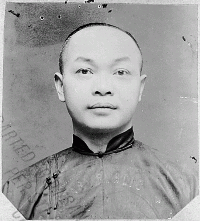Federal Judge Blasts Joe Arpaio’s Racial Profiling and Detention Policy
In a scathing decision just entered by Judge Murray Snow in the District Court for the District of Arizona, the court has hammered the racial profiling and detention policies of Maricopa County Sheriff Joe Arpaio. The case is Melendres v. Arpaio, and the Arizona Republic described the decision thusly:
The Maricopa County Sheriff’s Office has engaged in racial profiling and must not use Hispanic ancestry as a factor when making law-enforcement decisions, a federal judge has ruled.
U.S. District Judge Murray Snow issued the ruling Friday, more than eight months after a seven-day trial on the subject concluded. The trial examined longstanding allegations that Sheriff Joe Arpaio’s emphasis on immigration enforcement led deputies to target Latino drivers based on their race, and that by doing so, they violated the constitutional rights of Maricopa County residents and the sheriff’s own policies requiring constitutional policing.
….
The class of Hispanic citizens that brought the racial-profiling lawsuit against the Sheriff’s Office never sought monetary damages. Instead, the group asked for the court to issue injunctions barring Arpaio’s office from discriminatory policing.Snow obliged — and indicated more remedies could be ordered in the future.
Here is a link to the full decision.
The decision is long at 142 pages, but it is beautiful and contains specific findings of fact and conclusions of law that will make it hard to reverse on appeal to the 9th Circuit. There is no question but that Arpaio will appeal, but he will not be doing so from a good position in light of this decision.
Here are some quick highlights:
As is set forth below, in light of ICE’s cancellation of the MCSO’s 287(g) authority, the MCSO has no authority to detain people based only on reasonable suspicion, or probable cause, without more, that such persons are in this country without authorization.
…
Thus, the MCSO’s LEAR policy that requires a deputy (1) to detain persons she or he believes only to be in the country without authorization, (2) to contact MCSO supervisors, and then (3) to await contact with ICE pending a determination how to proceed, results in an unreasonable seizure under the Fourth Amendment to the Constitution.
And
Thus, to the extent it uses race as a factor in arriving at reasonable suspicion or forming probable cause to stop or investigate persons of Latino ancestry for being in the country without authorization, it violates the Fourth Amendment. In addition, it violates the Plaintiff class’s right to equal protection under the Fourteenth Amendment to the Constitution and Title VI of the Civil Rights Act of 1964.
And
Finally, the knowledge that a person is in the country without authorization does not, without more, provide sufficient reasonable suspicion that a person has violated Arizona criminal laws relating to immigration, such as the Arizona Human Smuggling Act, to justify a Terry stop for purposes of investigative detention. To the extent the MCSO is authorized to investigate violations of the Arizona Employer Sanctions law, that law does not provide criminal sanctions against either employers or employees. A statute that provides only civil sanctions is not a sufficient basis on which the MCSO can arrest or conduct Terry stops of either employers or employees.
There is a LOT of prime substance to this decision, and it all needed to be said. The fact that it comes with specific and articulated findings of fact and conclusions of law, after a trial, makes all the difference in the world as to strength. It is a treat for the Memorial Day weekend.


